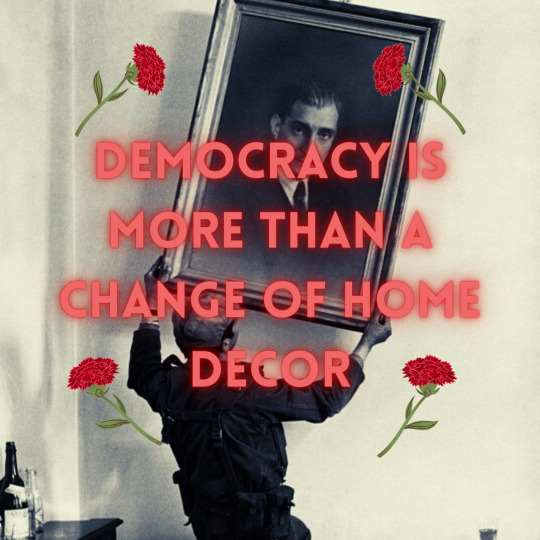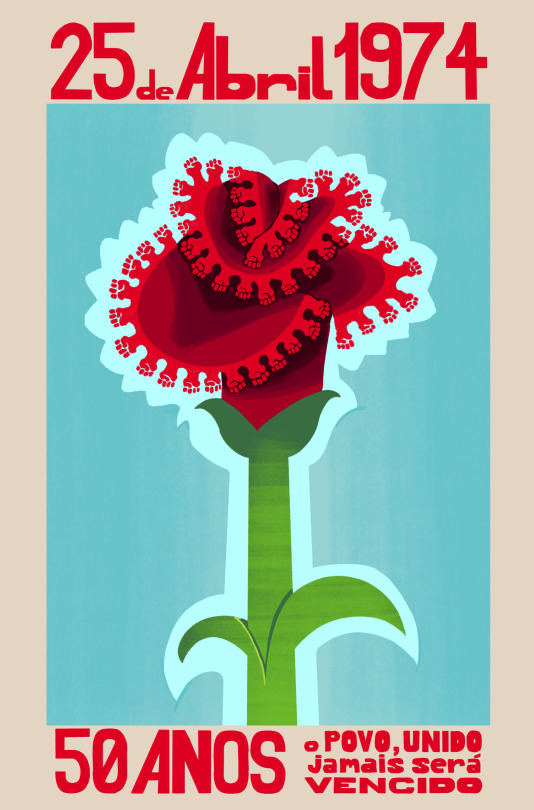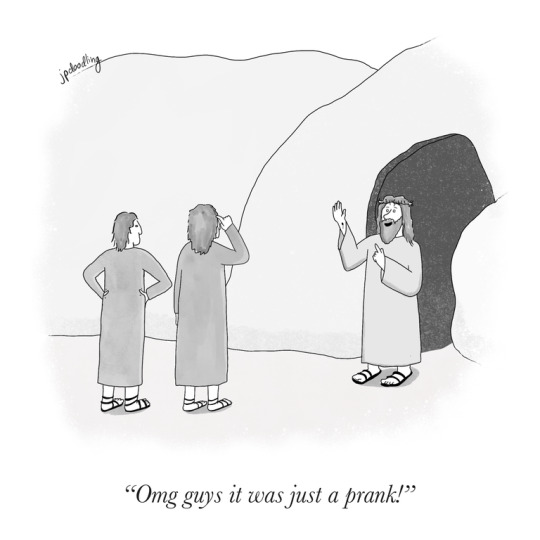Photo
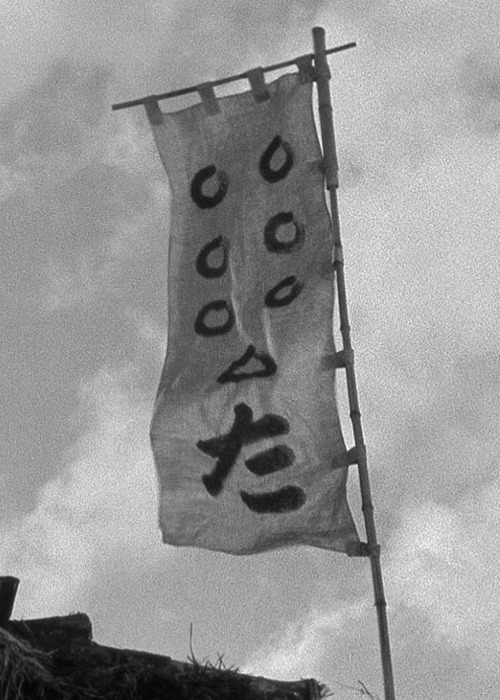
Seven Samurai turns 60 —
Akira Kurosawa’s masterpiece premiered April 26, 1954.
“Japanese films all tend to be rather bland in flavor, like green tea over rice, but I think we ought to have richer foods, richer films. So I thought I would make this kind of film, entertaining enough to eat… We all suffered making that film! But it was wonderful work, too. My own staff, those people who always work with me—well, there are no better people in the world to work with. And I don’t mean only the actors, or the writers, or art directors—I mean the carpenters, electricians, the grips and lightmen. Even without my telling them much, they knew just what I would have wanted. It is thanks to all of them that I’ve been able to make films like this one.”
— Akira Kurosawa
“It was awfully cold when we shot that final battle in the rain. At first, I thought we’d be done shooting by the end of summer, but New Year’s had passed and it was February, the coldest time of the year, when we reached that point. I was naked but for a single plate of what looks like armor, with straw sandals on my bare feet, running around on mud that was frozen as hard as ice. It was cold, let me tell you, felt like way below zero, and still they kept showering us with that damned rain. I would run and fall, run and fall, my whole body shivering. I sure couldn’t do that anymore. I get a lot of fan mail from abroad saying they like the way that I die in the film, with my bare ass exposed. I sure didn’t have time to think about that sort of thing then! How old was I, thirty-three? So young.”
— Toshiro Mifune
733 notes
·
View notes
Text

O único salazar de que precisamos.
50 anos de Liberdade! ♥️
12 notes
·
View notes
Text
April 25th of 1974: The Carnation Revolution that restore the Freedom and Democracy to Portugal.

The Carnation Revolution (Revolução dos Cravos), also known as the 25 April (25 de Abril), was initially a 25 April 1974 military coup in Lisbon which overthrew the authoritarian Estado Novo regime. The revolution began as a coup organised by the Armed Forces Movement (Movimento das Forças Armadas, MFA), composed of military officers who opposed the regime, but it was soon coupled with an unanticipated, popular civil resistance campaign. The revolution led to the fall of the Estado Novo, terminated the Portuguese Colonial War, and started a revolutionary process that would result in a democratic Portugal.
Its name arose from the fact that almost no shots were fired, and Celeste Caeiro offered carnations to the soldiers when the population took to the streets to celebrate the end of the dictatorship; other demonstrators followed suit, and carnations were placed in the muzzles of guns and on the soldiers’ uniforms. In Portugal, 25 April is a national holiday (Dia da Liberdade, Freedom Day) which commemorates the revolution.
In February 1974, Caetano decided to remove General António de Spínola
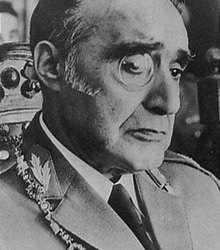
from the command of portuguese forces in Guinea in the face of Spínola’s increasing disagreement with the promotion of military officers and the direction of Portuguese colonial policy. This occurred shortly after the publication of Spínola’s book, Portugal and the Future, which expressed his political and military views of the Portuguese Colonial War. Several military officers who opposed the war formed the MFA to overthrow the government in a military coup. The MFA was headed by Vítor Alves,
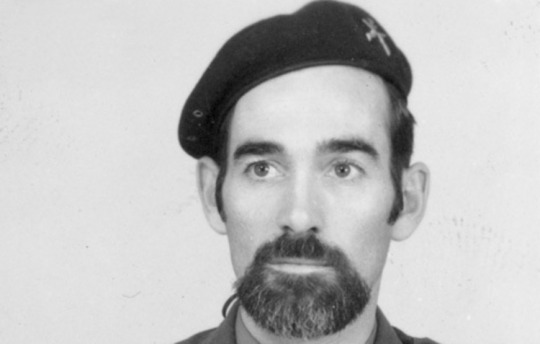
Otelo Saraiva de Carvalho
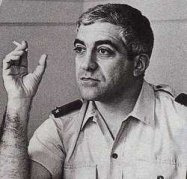
and Vasco Lourenço,

and was joined later by Salgueiro Maia.
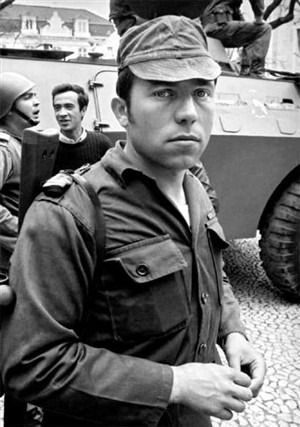
The movement was aided by other Portuguese army officers who supported Spínola and democratic civil and military reform. It is speculated that Francisco da Costa Gomes

actually led the revolution.
The coup had two secret signals. The first was the airing at 10:55 p.m. on 24 April of Paulo de Carvalho’s “E Depois do Adeus”
youtube
(Portugal’s entry in the 1974 Eurovision Song Contest) on Emissores Associados de Lisboa, which alerted the rebel captains and soldiers to begin the coup. The second signal came at 12:20 a.m. on 25 April, when Rádio Renascença broadcast “Grândola, Vila Morena”
youtube
(a song by Zeca Afonso, an influential political folk musician and singer who was banned from Portuguese radio at the time). The MFA gave the signals to take over strategic points of power in the country.
Six hours later, the Caetano government relented. Despite repeated radio appeals from the “captains of April” (the MFA)
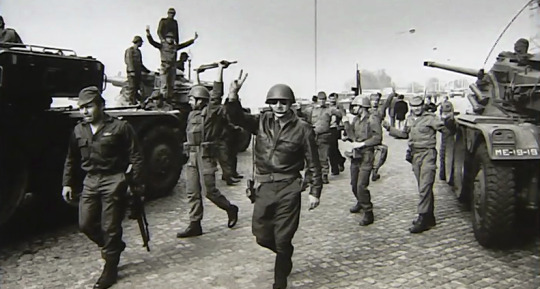
advising the population to stay home, thousands of Portuguese took to the streets – mingling with, and supporting, the military insurgents.

A central gathering point was the Lisbon flower market, then richly stocked with carnations (which were in season). Some of the insurgents put carnations in their gun barrels, an image broadcast on television worldwide which gave the revolution its name.
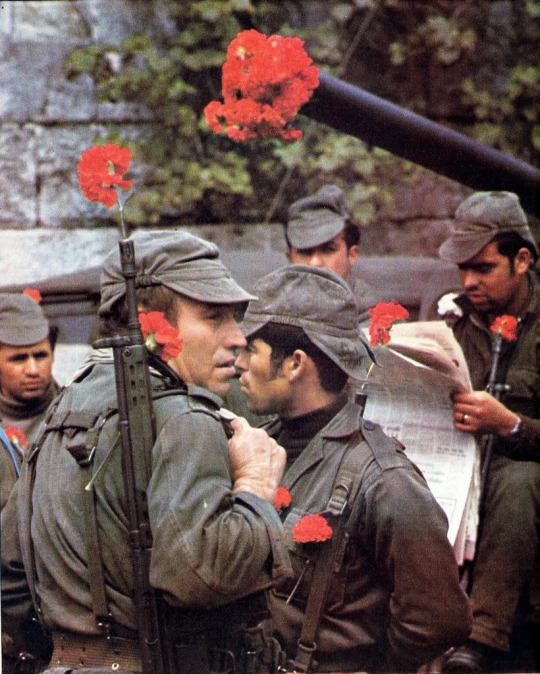
Although no mass demonstrations preceded the coup, spontaneous civilian involvement turned the military coup into a popular revolution “led by radical army officers, soldiers, workers and peasants that toppled the senile Salazar dictatorship, using the language of socialism and democracy. The attempt to radicalize the outcome,” noted a contemporary observer of the time, “had little mass support and was easily suppressed by the Portuguese Socialist Party and its allies.”
Construction of the 25 de Abril Bridge began on 5 November 1962. It opened on 6 August 1966 as the Salazar Bridge, named after Estado Novo leader António de Oliveira Salazar.

Soon after the Carnation Revolution, the bridge was renamed the 25 de Abril Bridge to commemorate the revolution.
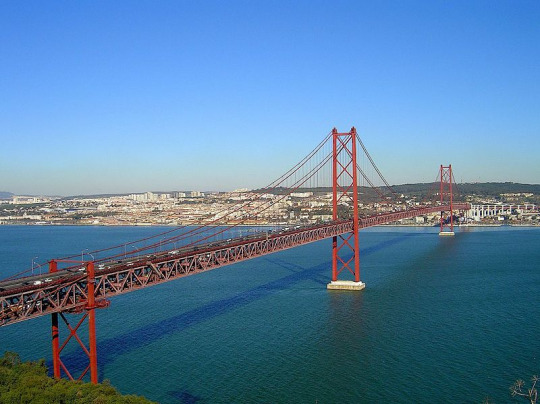
Citizens who removed the large, brass “Salazar” sign from a main pillar of the bridge and painting a provisional “25 de Abril” in its place were recorded on film. Many Portuguese streets and squares are named vinte e cinco de Abril, for the day of the revolution. The Portuguese Mint chose the 40th anniversary of the Carnation Revolution for its 2014 2 euro commemorative coin.
After an early period of turmoil, Portugal emerged as a democratic country. The country divested itself of almost all of its former colonies and experienced severe economic turmoil. For the Portuguese and their former colonies this was a very difficult period, but civil rights and political freedoms were achieved.
The international community censured the Estado Novo regime for refusing to grant independence to its colonies in Africa. Its leaders, Salazar and Caetano, were accused of being oblivious to what Harold Macmillan called the wind of change in Africa.
Freedom Day (25 April) is a national holiday, with state-sponsored and spontaneous commemorations of the civil liberties and political freedoms achieved after the revolution. It commemorates the 25 April 1974 coup and Portugal’s first free elections on that date the following year.
VIVA O 25 DE ABRIL!! VIVA PORTUGAL!!!!
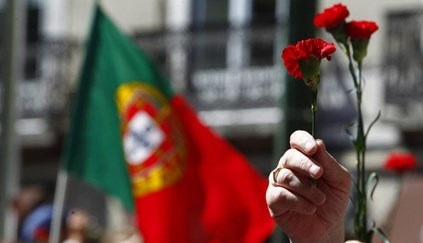
309 notes
·
View notes
Text
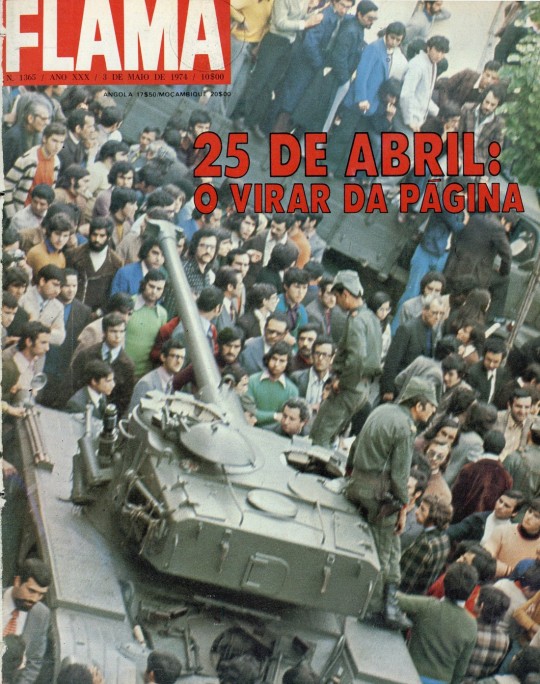
Maravilha
"Todos tinham a certeza que desde o tempo dos reis nunca mais se vira de igual. Ah maravilha. Então o carro parou em frente do grupo, e fez-se um momento de silêncio tão solene que as pessoas pensaram ir morrer. Mas um soldado. Particularmente bem feito, tendo sem dúvida nascido numa terra muito diferente. Começou a falar de cima do carro, agora parado no largo. Dizia coisas. Que tinha feito uma re vo lu ção, e que era preciso animar os espíritos. Porque tudo. Tudo. E abria os braços do salvador. Tudo iria ser modificado."
Lídia Jorge, "O Dia dos Prodígios"; revista Flama, 3 de maio de 1974, fotógrafo não identificado.
17 notes
·
View notes
Text

'as mãos da revolução', 2024
or, 'the hands of the revolution'
we're celebrating 50 years of the carnation revolution today in portugal - 50 years since the dictatorship fell, 50 years of being able to express yourself without fear of beatings, incarceration or worse.
it is a date that sits very close to my heart despite being a post-revolution baby. i have enjoyed over 30 years of freedom and i try to not take it for granted.
instagram | my website
202 notes
·
View notes
Text

📷 Confirmação do início das operações militares - Senha: Coragem - Contra senha: Pela vitória
3 notes
·
View notes
Text
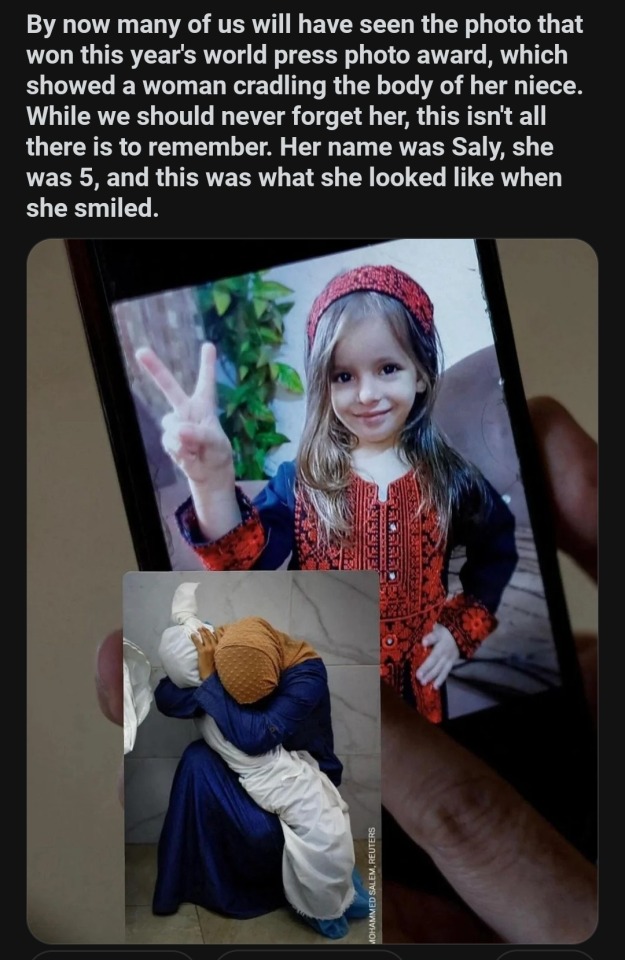
Saly was five. My heart breaks for all who loved Saly. 💔💔💔
321 notes
·
View notes
Text

Erwin Olaf, April Fool, 2020
"The supermarket shelves, emptied by hoarders, made me realise that for decades I have assumed that everything would always be there, that our dancing on the volcano's edge would never end"
646 notes
·
View notes
Photo


By 1983, Marvin Gaye was abusing drugs, had become paranoid (he wore a bullet-proof vest thinking that he would be the target of an assassin), and talked of suicide.
In August 1983, Gaye moved into his parents’ home to care for his mother as she recuperated from surgery. Gaye and his father had a conflicted relationship and the two men struggled to keep their distance and to keep the peace.
According to his sisters, Gaye became so paranoid that he was afraid to leave his room, and talked openly about his desire to die. On Christmas Day, he gave his father a pistol so that his father could “protect himself.”
Gaye’s parents argued frequently about a misplace insurance policy in the days leading up to Gaye’s murder, and Gaye ordered his father to leave the house.
Around 12:30 pm on 1 April 1984 (the day before Gaye’s 45th birthday), Gaye’s father entered the house and began shouting about the policy. Gaye emerged from his bedroom, dressed in his robe, and told his father he had better not come upstairs. Gaye’s father charged upstairs and continued yelling at Gaye’s mother. Gaye attacked his father. “Marvin hit him,” Gaye’s mother said. “I shouted for him to stop, but he paid no attention to me. He gave my husband some hard kicks.”
According to Gaye’s sisters, their father had often told them that if any one of them ever laid a hand on him, he would kill them.
Gaye’s mother separated the men, and Gaye returned to his room. Moments later, his father entered and shot him twice with the pistol Gaye had given him for Christmas.
Cocaine and PCP were found in Gaye’s system during the autopsy. His drug use, and the severe beating he had given his father prior to the shooting, resulted in Marvin Gaye, Sr. receiving a 6-year suspended sentence and five years probation.
130 notes
·
View notes
